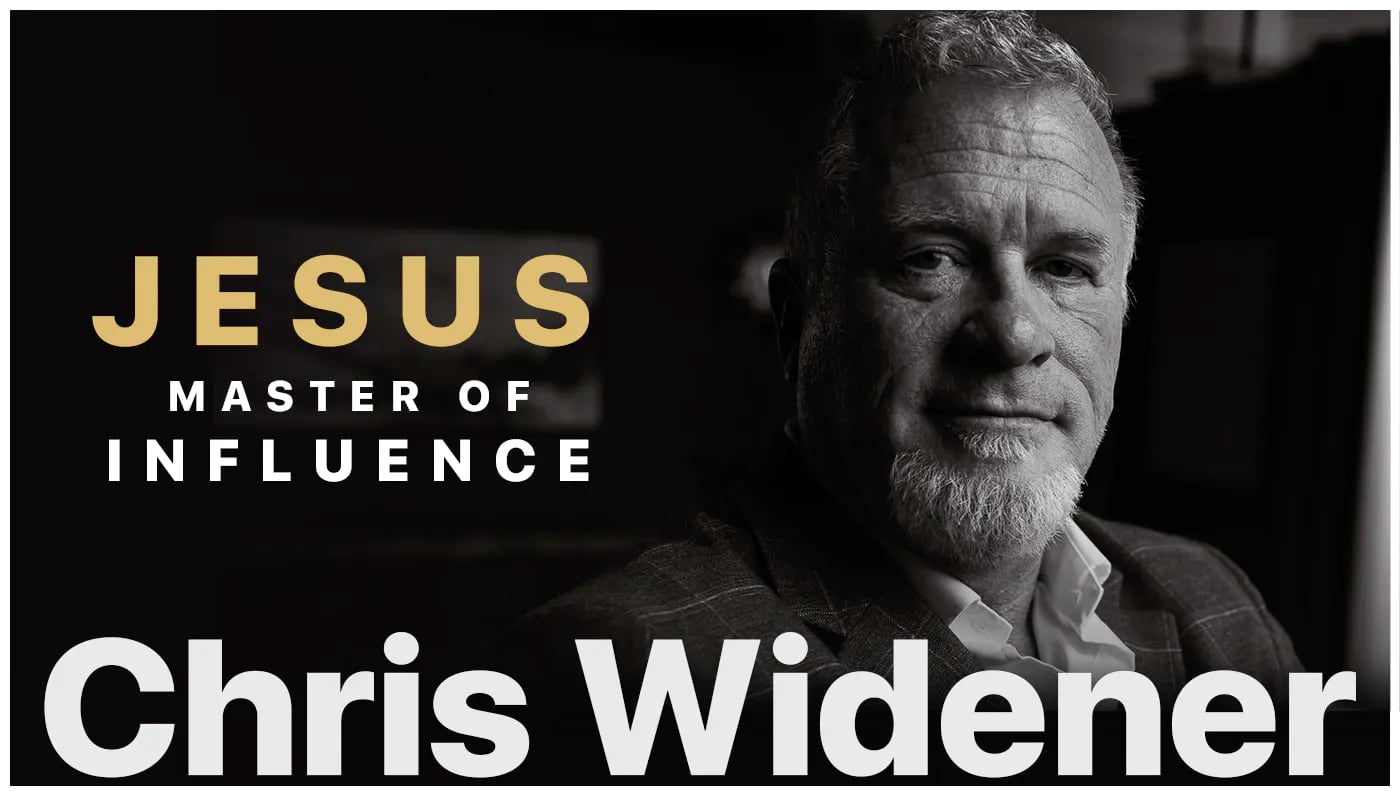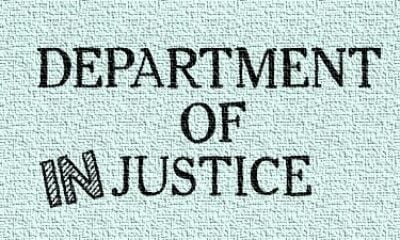

Business
Stay Focused; There’s No Time for Media Hype or Spin
Be selective as to where you offer your time and attention.
Decades back, my friend, Bill Halloran, liked to listen to Howard Stern in the morning. Year after year on his way to work, Bill was titillated by Howard Stern’s shock talk. Hundreds of thousands of working professionals must have felt the same way. Howard is now a multi-millionaire.
Stern offered no sense of breathing space to Bill. After hearing Stern, no one was empowered, energized, or better able to face the day. He was, in essence, an electronic fix, a drug, if you will, that briefly took you out of your own life and into some form of contemptuous humor that got you through the next ten minutes. Even among those who know this on some level, why did so many people listen? The answer is what I call “electronic addiction.”
The Anxiety of Electronic Addiction
As a society, our exposure to the media, including the internet, has increased several hundred percent within a few decades, and while worldwide media coverage provides many benefits, it also has quite a few side effects. As we spend more and more hours glued to electronic media, we are exposed to tens of thousands of messages and images. Just as too much food at one sitting, isn’t easily ingested, neither is too much data in any form.
Concurrent with the deluge, we have become an anxious society that uses electronics to not feel alone, evade confronting why we can’t seem to get what we want, or to avoid better use of the hours we say we so earnestly want. We retain, embrace and offer rapt attention to all forms of media, and to the devices transmitting them to us. So it’s logical that we then make million dollar superstars out of TV meteorologists and morning exercise show hosts.
The shrinking attention span – Our cultural, electronic addiction to the mass media inverts our perception of available time, and diminishes our attention spans. Hence the Howard Sterns of the airwaves capture the attention of otherwise distracted listeners. Television and radio news and features are growing ever shorter to match the fragmented, decreasing attention spans of viewers.
Try this: For the next minute, stare at your watch, or if that’s too boring, think about something pleasurable you’re going to do today. Your perception of the length of a minute will differ vastly from using that minute to listen to the news or read a page from a magazine.
Warning: The exercise you were going to do for a full minute may have just failed. Our culture is so committed to motion and to information intake that you might be unable to make yourself stare at your watch or simply contemplate for one minute, even when the thought is of something pleasurable!
The Rise of Sensationalism
Around the turn of the century, to build his newspaper chain faster and to sell more papers, William Randolph Hearst used sensationalism to heighten the most mundane of stories. For example, if one of his reporters turned in a story about a dog who got his foot stuck in a sewer grate, Hearst would have the headline changed to read,
“CANINE TRAPPED IN TUNNEL OF DEATH.”
Hearst perceived that the public was interested in prominent names, and he loaded the paper with them. For several years he worked the “signed statement” racket for all it was worth. The method involved simply sending an inquiry to any person of prominence. When a courteous reply was received, it was immediately slapped into print.
In every city having a Hearst paper, an index was kept of people willing to be quoted along certain lines. For example, if Hearst favored the Navy’s buying big battleships, a list of retired admirals would be taken from the files, and each of the old gentlemen would be approached for his opinion. Those who agreed would be heavily quoted in articles, i.e., “Retired Admiral XYZ Says Navy Lacking In…”
I find it remarkable that the Pulitzer Prize, an award alleged to represent the highest aspirations and achievements in journalism, is named for Mr. Joseph Pulitzer. While Pulitzer did not originate sensationalism, he played a crucial role in the history of American journalism simply by living at a time when social and economic changes enabled sensationalism to flourish.
Pulitzer used frivolous pictures, poetry, short stories, and the like, to make the newspaper a medium to entertain as well as inform. Pulitzer borrowed ideas of sensationalism that were not his own and brought them up to date to fit a modern America of cities and factories.
When Pulitzer set up shop in New York, he wanted to achieve the greatest circulation in America’s history. He needed a large circulation to have a platform from which his liberal principles could be heard. To obtain it, he had to win the confidence, as well as excite the interest, of the masses of people. Many features that appealed to a working-class audience – pictures, lurid accounts of crime and violence, the air of irreverence – were bound to appeal to others as well.
Overstimulated and Distracted
To this day, to capture an overstimulated, distracted population, contemporary television and other news media rely more and more on sensationalism. It’s ingrained in the nature of broadcasting, and it’s hazardous to our awareness.
With a planet of nearly eight billion people, the media are easily furnished with an endless supply of turmoil for mass transmission. At any moment somebody is fomenting revolution somewhere. Such turmoil is packaged daily for the 24 hour news cycle.
We are lured with images of crashes, hostages, and natural disasters. We offer our time and rapt attention to each new hostility, scandal or disaster. Far more people die annually from choking on food than in plane crashes or by guns, but crashes and shootings make for great footage, and play into people’s fears.
Your chance of dying from a commercial airplane mishap actually is one in 2,600,000. So, you need only be concerned if you fly five flights per week, 52 weeks per year, for several thousand years.
Unless it directly affects you or your community, give up offering any attention, whatsoever, to news coverage of spectacular crashes and train wrecks, etc. If you’re concerned about reducing the incidence of violent death, learn the Heimlich maneuver or CPR. But puuleeeease, stop being enthralled by spectacular media coverage of non-imperative events and sensationalized trivia.
Gaining Control
It is not immoral to not “keep up” with the news. However to “tune out” – turn your back on the world is not appropriate either. Being more selective in what you give your attention to, and to how long you give it, makes more sense.
There is little utility in intellectually resonating with the world’s challenges and problems. Pick one cause or one issue, and take some kind of action outside your home. For most of us on the Right, the burning issue today is reclaiming our country from Leftist zealots.
Action is customarily invigorating. Your ability to make a real, if minute, difference will immediately lessen your concerns about attaining some breathing space.
Tomorrow morning, quietly envision how you would like your day to be. Include everything that’s important to you – the commute if you make one, entering your building or your office, sitting down at your desk, handling tasks, and taking breaks.
Envision interacting with others, going to lunch, conducting or attending meetings, using the phone, finishing up projects, and walking out in the evening. With this exercise alone, you’ll begin to feel a greater sense of control in aspects of your job that you might have considered uncontrollable.
– – – – –
We'd love to hear your thoughts about this article. Please take a minute to share them in the comment section by clicking here. Or carry the conversation over on your favorite social network by clicking one of the share buttons below.
Join the conversation!
We have no tolerance for comments containing violence, racism, profanity, vulgarity, doxing, or discourteous behavior. Thank you for partnering with us to maintain fruitful conversation.
Business
Work-Life Balance in Your Life
It the ability to experience a sense of control and to stay productive and competitive at work while maintaining a happy, healthy home-life
Work-life balance (WLB) is the ability to experience a sense of control and to stay productive and competitive at work while maintaining a happy, healthy home-life with sufficient leisure. WLB, also referred to by some as work-life harmony, work-life shift, work-life blend, work-life effectiveness, or work-life integration, requires focus and awareness despite seemingly endless tasks and activities competing for our time and attention.
Work-life balance entails having what I call “breathing space” for yourself each day, feeling a sense of accomplishment while not being consumed by work, and having an enjoyable domestic life without short-changing career obligations. WLB is rooted in whatever fulfillment means to you within the course of a day and a week, and however many years you have left in your life.
Supporting Disciplines
Several disciplines support work-life balance though, individually, none are synonymous with work-life balance:
1) Self Management
Sufficiently managing one’s self can be challenging, particularly in getting proper sleep, exercise, and nutrition. Self-management is the recognition that effectively using the spaces in our lives is vital, and that life, time, and available resources are finite. It means becoming captain of our own ship; no one is coming to steer for us.
2) Time Management
Effective time management involves making optimal use of your day and the supporting resources that can be summoned – you can only keep pace when your resources match your challenges. Time management is enhanced through appropriate goals and discerning what is both important and urgent, versus important OR urgent. It entails understanding what you do best and when, and assembling the appropriate tools to accomplish specific tasks.
3) Stress Management
By nature, societies tend to become more complex over time. In the face of increasing complexity, stress on the individual is inevitable. More people, noise, and distractions, independent of one’s individual circumstances, require each of us to become more adept at maintaining tranquility and being able to work ourselves out of pressure-filled situations. Most forms of multi-tasking ultimately increase our stress, while focusing on one thing at a time helps decrease stress.
4) Change Management
In our fast-paced world, change is virtually the only constant. Continually adopting new methods, adapting old, and re-adapting all methods is vital to a successful career and a happy home life. Effective change management involves offering periodic and concerted efforts so that the volume and rate of change at work and at home does not overwhelm or defeat you.
5) Technology Management
Effectively managing technology requires ensuring that technology serves you, rather than abuses you. Technology has always been with us, since the first walking stick, spear, flint, and wheel. Today, the rate of technological change is accelerating, brought on by vendors seeking expanding market share. Often you have no choice but to keep up with the technological Joneses, but rule technology, don’t let it rule you.
6) Leisure Management
The most overlooked of the work-life balance supporting disciplines, leisure management acknowledges 1) the importance of rest and relaxation, 2) that “time off” is a vital component of the human experience, and 3) that one can’t indefinitely short-change leisure without repercussions. Curiously, too much of the same leisure activity, however enjoyable, can lead to monotony. Thus, effective leisure management requires varying one’s activities.
Entirely Achievable
Achieving work-life balance does not require radical changes in what you do. It is about developing fresh perspectives and sensible, actionable solutions that are appropriate for you. It is fully engaging in life with what you have, right where you are, smack dab in the ever-changing dynamics of your existence.
– – – – –
Business
Work-life Balance: The Enduring Quest
Organizations today recognize the importance of supporting employees’ well-being while maintaining productivity
Thank goodness that organizations today increasingly recognize the importance of supporting employees’ well-being while maintaining productivity. As such, the corporate quest for work-life balance, harmony, and integration has gained great prominence.
Key Aspects
Here are 12 key aspects of this pursuit gleaned from a variety of programs:
1. Offer Flexible Work Arrangements: Offering flexible work schedules, remote work options, and part-time opportunities allows employees to better balance their professional and personal lives.
2. Have Clear Policies: Establishing clear policies and guidelines regarding work hours, overtime, and expectations helps employees manage their time effectively.
3. Support Mental Health: Providing access to mental health resources, counseling, and stress management programs can address employees’ emotional well-being.
4. Give Leave: Offering generous paid time off, including vacation, sick leave, and parental leave, allows employees to address personal and family needs without fear of repercussions.
5. Prevent Burnout: Encouraging employees to disconnect from work-related technology after hours helps prevent burnout and supports work-life separation.
6. Support Workload Management: Ensuring that employees have manageable workloads and realistic deadlines prevents excessive stress and long working hours.
7. Provide Wellness Programs: Implementing wellness initiatives, such as fitness facilities, nutrition programs, and health screenings, promotes a healthier work-life balance.
8. Enable Employee Assistance Programs: Such programs provide confidential counseling and support services for employees facing personal challenges.
9. Promote a Culture of Balance: Company culture plays a significant role in work-life balance. Leaders should model a balanced lifestyle, and the organization should celebrate accomplishments beyond work.
10. Maintain Continuous Communication: Engaging in open dialogues with employees about their needs and concerns regarding work-life balance fosters a supportive and responsive corporate culture.
11. Empower Workers with Training and Education: Providing training on time management, stress reduction, and resilience equips employees with the skills to better balance their lives.
12. Leverage Remote Work Policies: Crafting clear remote work policies and expectations ensures that remote employees have a structured work-life balance.
Bringing in the Hired Gun
As the world’s only holder of the title, “The Work-Life Balance Expert®,” as issued by the USPTO, I am often summoned by organizations to enhance work-life balance for their troops. In all, I’ve delivered programs and spoken to 960 groups. Below depicts an encounter with a company who shall remain nameless for reasons of confidentiality. See if this squares up with your experience in your organization.
The following responses were derived as a result of my sending a questionnaire to the conference meeting planner where I was to be their keynote speaker. I requested the names of 10 people who would be in the audience. I called each of them to discuss their current challenges. Here are their actual replies to three of my questions:
1) If you could magically resolve a work-life balance issue, what would it be?
* Have more breathing room between high-level projects.
* Accomplish more during the workday and leave mentally free.
* Hire more staff!
* Take vacations and time off with no big pile ups when returning.
* Be allowed to take some Fridays off and catch up on much needed appointments.
* Reduce the number of pop-up requests and questions flying at me all day long so that I could ACTUALLY do what I need to do each day.
* Be approved to work from home or adjust my hours. My personal time isn’t respected.
2) What do you seek to derive from attending a session such as mine?
* Manage my time more effectively.
* Gain tools to embrace life while living it
* Develop stronger skills.
* Make work-life balance a reality in our company’s work-first culture.
* Acquire strategies, tips, or ideas to re-think my approach.
* Learn to change my focus, to be more productive, balanced, and focused.
* Be able to balance the few things that I do control during my day.
* Discover tips for keeping my staff in balance.
* Gain a realistic expectation of what we can achieve or experience.
* Develop a more positive outlook for the group.
3) Are there any observations you could offer?
* Work-life balance is a huge topic organization-wide. We are high performers who want to do a good job. We compromise our personal lives to meet work demands. We have to keep pace with the leaders and teams we support. If we don’t, we’ll be deemed unresponsive.
* A frenetic pace seems to be inherent in this company. Our team does a good job of emphasizing work-life balance; the problem lies with the surrounding divisions that thrive on working all the time, for no good reason. Yes, we are in a global space, working in different time zones, but some of these people are beyond the pale.
* What I love about this organization are the people. They are dedicated to the cause and truly want to deliver reliable, affordable, dynamic, and versatile solutions to our customers. However, our frenetic pace isn’t necessary. Not every project is the most vital. Not every problem is an emergency. Not every request has to be filled now.
* If in charge, I’d implement a more efficient, logical pace organization-wide. If we all took a breath and reevaluated how we work, in a more focused environment, we might find that we could produce better results with less stress.
Resonates Strongly
As you can see, the topic of work-life balance resonates strongly among today’s career professionals. Going forward, may more organization recognize and acknowledge the critical role that employee wellness and work-life balance has on the organization’s overall effectiveness.
– – – – –












